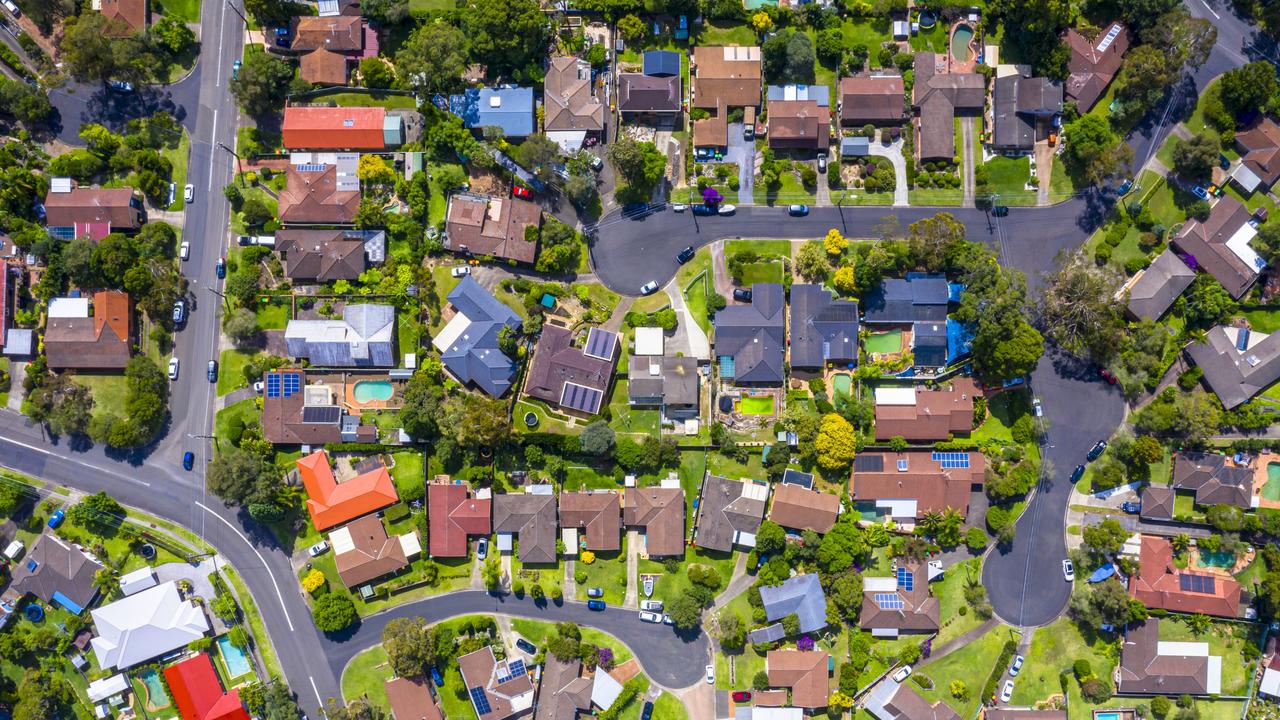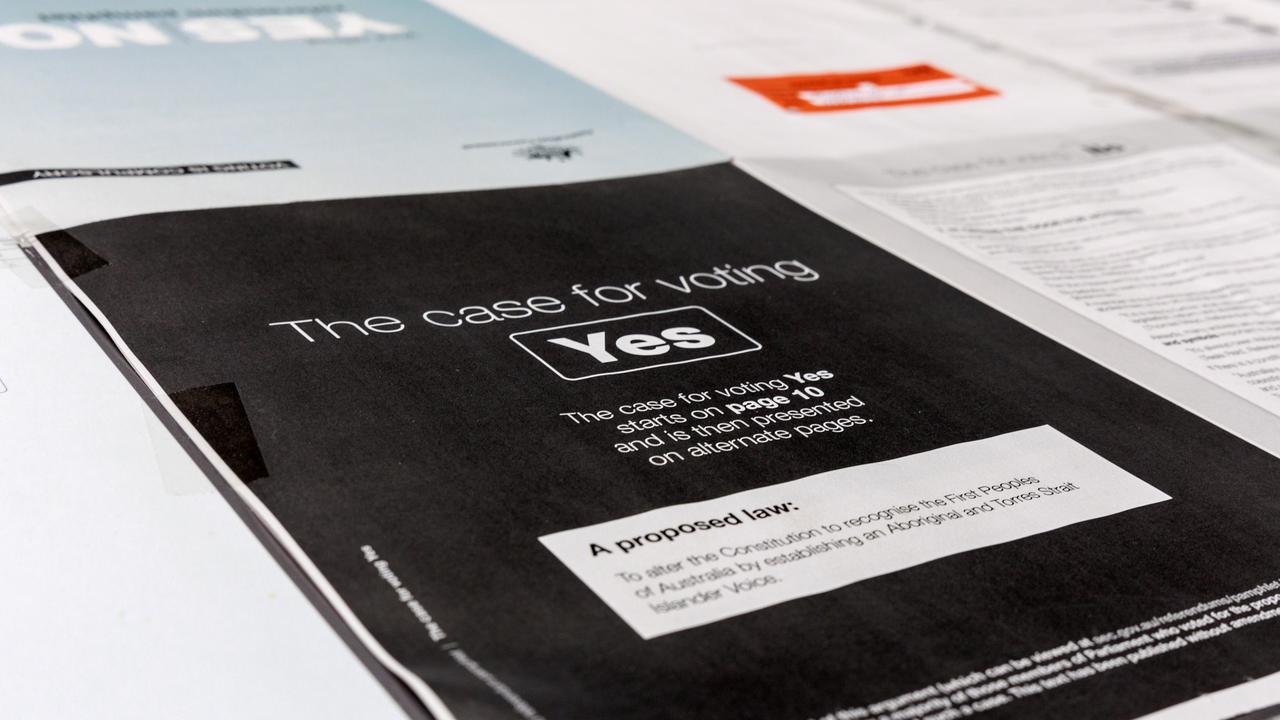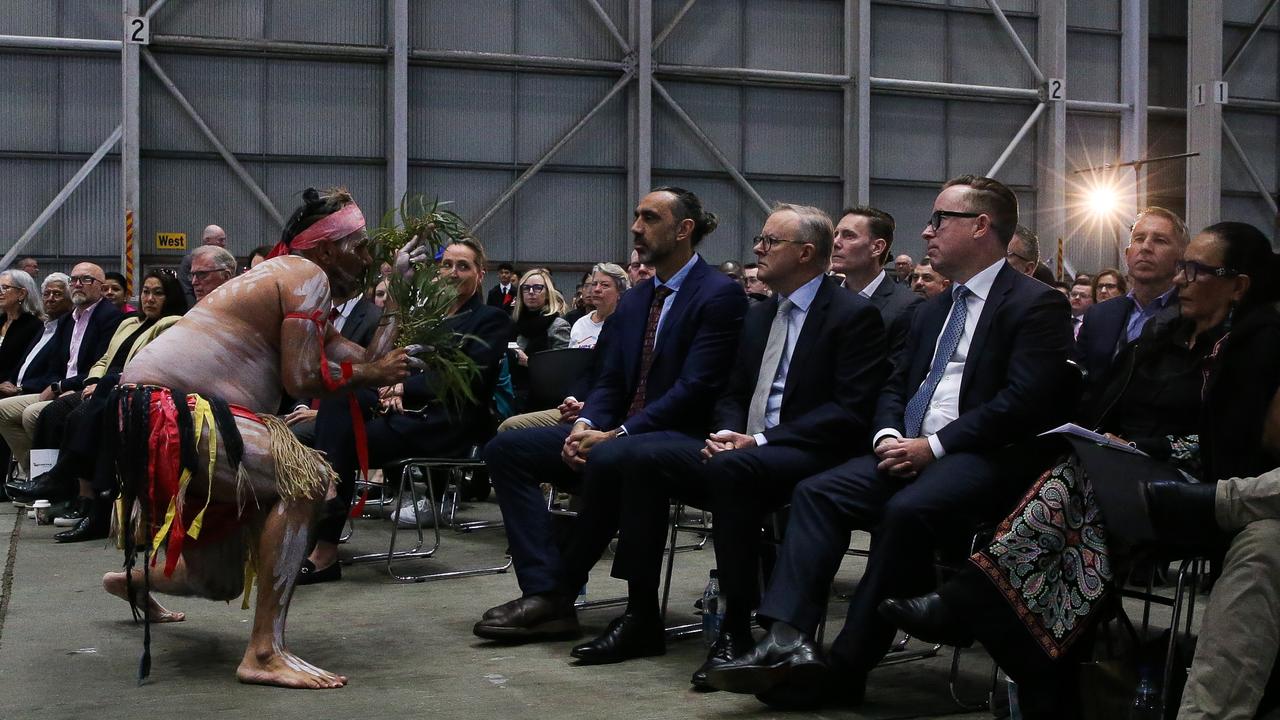Graph shows support for Voice fell off ‘mortgage cliff’
Public support for the Voice began to fall sharply in May, coinciding with another “disastrous” event for Aussie families.
Public support for the Indigenous Voice to Parliament began to fall sharply in May at the same time more than 600,000 households hit the “mortgage cliff” as fixed-rate loans rolled over onto sharply rising variable rates, a leading pollster says.
RedBridge director Kos Samaras, who last week warned that voters in mortgage belt suburbs “starting to lose their homes” were growing “annoyed” at the Voice debate, says he repeatedly tried to warn the Yes campaign earlier this year about the “looming problem”.
What happened at around May 2023 (see graph)? The start of over 600k households moving from fixed rate to variable rate. We warned about this looming problem many times through the media and in person to those running the Yes campaign.
— Kos Samaras (@KosSamaras) August 15, 2023
Yes23 lining up with successful Australia,… pic.twitter.com/MXwzb5YtiH
“I was doing interviews saying watch out for the next three, four, five months as 600,000 to 800,000 households move from fixed to variable,” Mr Samaras said.
“The stress within the Australian public is going to increase exponentially and they’re going to be less willing to listen to anything beyond keeping a roof above their heads. We see this in a lot of our focus groups. People are now just clamping down.”
Since last May, the Reserve Bank has raised the cash rate by 400 basis points from 0.10 per cent in an attempt to tackle inflation — smashing borrowers in the process.

“This year, approximately 800,000 home loans — totalling $350 billion — are expected to transition from a fixed interest rate to a higher variable rate,” finance guru Mark Bouris wrote for news.com.au last month.
“Those who took on cheap fixed-rate mortgages in the years leading up to or during the pandemic will see the rate on their mortgage go from around 1.9 to 2.5 per cent to between 6 and 7 per cent. This will be disastrous for hundreds of thousands of families.”
For a borrower who took on a $500,000 loan in late 2020, the average monthly repayment would have been about $1850.
“Fast-forward two years later, when your rate goes from 2 per cent to 6.5 per cent, your monthly repayment would rise to more than $3000,” Mr Bouris said. “That’s a 50 to 70 per cent increase in monthly repayments, depending on the exact nature of their loans.”
He warned that Australia’s fixed-rate mortgage cliff was peaking, “meaning people are only just having their repayments double, which will progressively strain their household budgets over the rest of the year”.

Minutes from the RBA’s August meeting released this week show the board toyed with the idea of raising rates by another 25 basis points to 4.35 per cent, but held off partly due to the “acute financial challenges” facing many households.
Mr Samaras, a veteran Labor strategist, said there was a clear correlation between the graph showing support for the Yes campaign dipping — before being overtaken by the No side in June — and increasing cost-of-living pressures.
“You can see, suddenly the economic situation changed,” he said.
“Many, many households moved from fixed to variable, that coincided with exponential increases in interest rates. It was the worst of all worlds really for a lot of people.”
He also suggested the Yes campaign had been “not wise” in lining up with what he called “successful Australia” — CEOs, large corporations and celebrities — to sell the message to “unsuccessful Australia”.

On Monday, Qantas boss Alan Joyce reaffirmed the airline’s support for the Voice, unveiling the Yes campaign logo on three aircraft at an event alongside Prime Minister Anthony Albanese.
Key members of the Yes campaign and the Uluru Dialogue will also receive free flights in order to travel to regional and remote Australia to spread the message ahead of the referendum.
Mr Joyce said the national carrier was “literally flying the flag” in support for the Voice. “These aircraft will cover a huge amount of the country,” he said. “Every major city, every major town will get to see this message, which is fantastic.”
But Mr Samaras said feedback from focus groups was “cynical”.
“Corporate Australia’s social capital has been on the decline for many years and relying on them to sell the message has in some way eroded the authenticity of the Yes proposition,” he said.
“People’s response is, bank CEOs and politicians are saying I should vote Yes — this is all political. People have become a lot more cynical. They’re missing the growing resentment within the community around some of these institutions. The Yes campaign should have avoided using the top end of town and just focused on selling the message using First Nations people.”
Mr Albanese told 3AW’s Neil Mitchell on Monday that despite the polling, he did not believe Australians were turning against the proposal, while conceding “it’s always hard to change a constitution, and it’s so much easier to run a No campaign because you’re not trying to convince people of something positive”.






